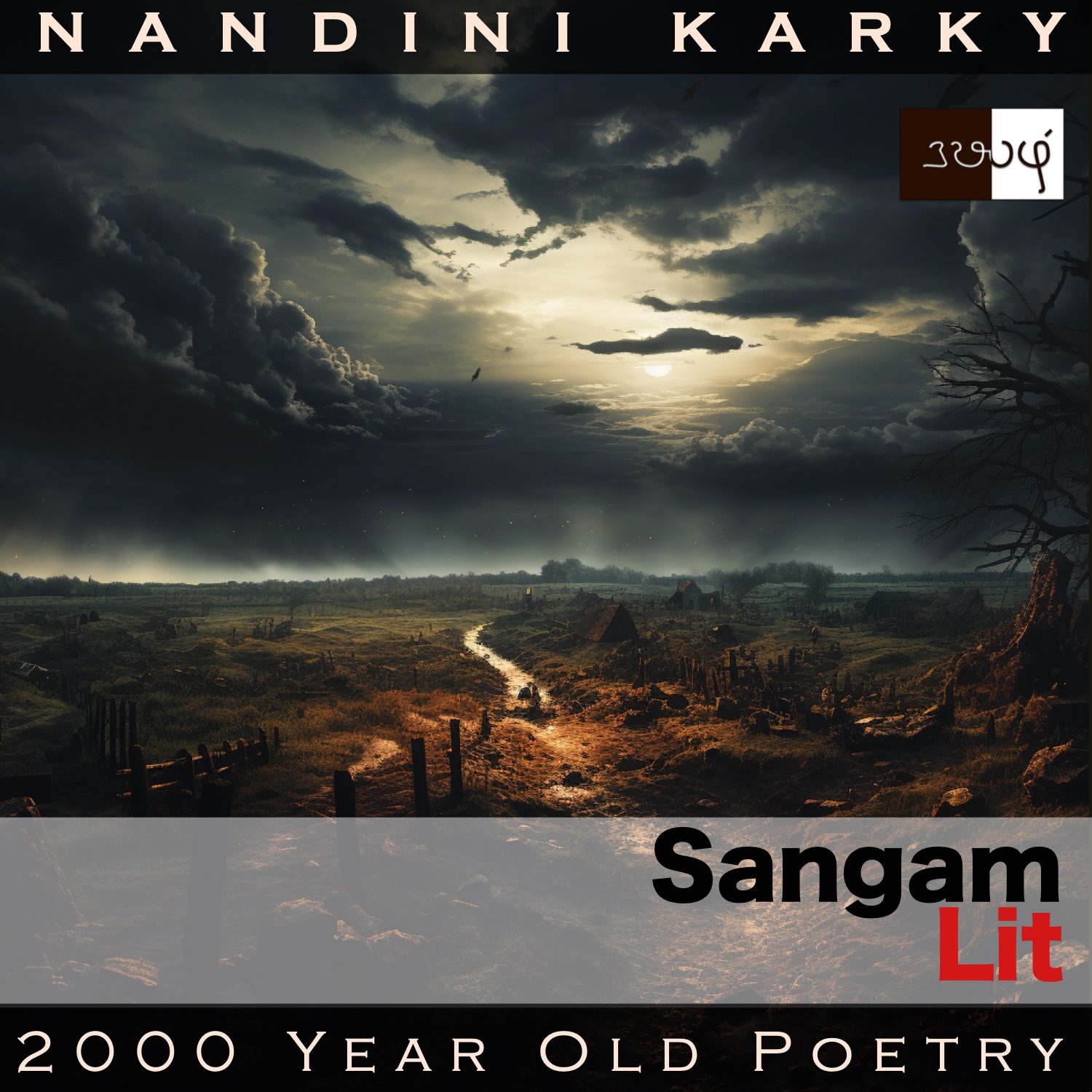Podcast: Play in new window | Download
Subscribe: Apple Podcasts | Spotify | Amazon Music | Android | iHeartRadio | TuneIn | RSS | More
In this episode, we observe the mythological beliefs about afterlife, as depicted in Sangam Literary work, Puranaanooru 241, penned about the Velir King Aay Andiran by the poet Uraiyoor Enicheri Mudamosiyaar. Set in the category of ‘Pothuviyal Thinai’ or ‘Common Themes’, the verse talks about the welcome the king is about to receive.

‘திண் தேர் இரவலர்க்கு, ஈத்த, தண் தார்,
அண்டிரன் வரூஉம்’ என்ன, ஒண் தொடி
வச்சிரத் தடக் கை நெடியோன் கோயிலுள்,
போர்ப்புறு முரசம் கறங்க,
ஆர்ப்பு எழுந்தன்றால் விசும்பினானே.
A tiny verse imagining the future of this dead king. The poet’s words can be translated as follows:
“Proclaiming, ‘Andiran, wearing moist garlands, the one who rendered sturdy chariots to supplicants cometh’, boom the leather-covered drums in the temple of the tall lord, wielding a thunder-bolt weapon in his strong hands, and that’s why uproarious sounds resound in the sky!”
Time to explore the intricacies. The poet imagines that the drums in the temple of the god, who holds a thunderbolt in his hand, are now roaring, sending out a specific message. This message was that Andiran, who was known for his moist garlands, and more importantly, for being a generous patron to supplicants, always rendering them not meagre things but tall chariots, was expected anytime there. And it’s the roaring of these drums that’s heard as the sounds in the sky just then, the poet concludes.
What a leap of imagination to connect a weather phenomenon such as thunder to the rumbling of drums in a God’s temple! Returning to that reference of a God with a thunderbolt, this idea of a sky god, symbolised by a thunderbolt, is by no means a unique notion in this culture, for it repeats in the Vedic tradition as ‘Indra’, in the Greek pantheon as ‘Zeus’ and in Roman mythology as ‘Jupiter’, not to mention countless other lesser known cultures with the same vision of a fearsome God in the skies! Such verses make me think that it’s the vivid imagination of poets like this Sangam wordsmith that has unified many a people in the name of gods!




Share your thoughts...